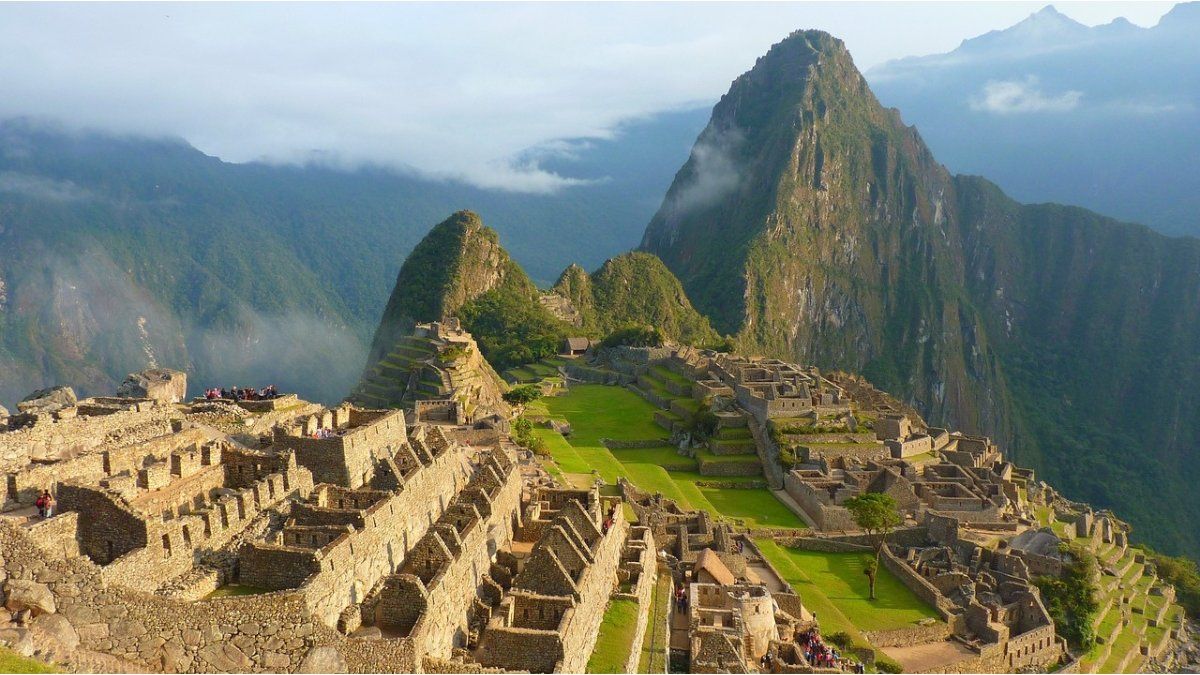The Inca citadel, declared as World Heritagereceives 1.5 million visitors year. Now him Government of Peru evaluate suspend momentarily the visits to Machu Picchu in response to the four days of protests by residentswhich affected more than 1,200 tourists during the weekend.
The conflict between the Government and Protestants arose as a result of the decision of the Executive of Peru to sell the tickets to Machu Picchu and the network of Inca roads through a online platform of the Joinnus private company. The protesters claim that it is “the first step for one privatization of the Inca city”.
Ticket sales: the cause of the protests in Peru
After a conflictive weekend, in which hundreds of protesters belonging to groups from the district of Machu Picchu Townin the department of Cuscoclosed their businesses and blocked the train tracks that give access to the imposing citadel, the Government of Peru evaluates closing the entrance to the Inca city if the conflict continues. The protests arose in response to the decision of the culture Ministry to sell tickets to Machu Picchu on the internet, through the Joinnus company platform.
Machu Picchu protests.jpeg
Protesters blocked railway tracks over the weekend to prevent access to the citadel.
@DiarioElPeruano /
Tickets for the Inca archaeological site were sold both online as for window. A few weeks ago, the government denounced a focus of corruption in the ticket management that he gave up for his physical sale.
He Chief of staff, Alberto Otáloradeclared that “every effort is being made to break up with a mafia that has illegally sold the tickets and we are not going to step back from the need to change this corruption model“. That is why the Ministry of Culture, commanded by Leslie Urteagaawarded the ticket marketing concession to the company Joinnus.
This generated strong rejection among the local merchants and tour operators who oppose the new system, which began operating nine days ago, considering that it is the first step towards the privatization of the place and gave rise to protests. Since Friday, the train serviceThe main means of transportation to the site is suspendedas well as the businesses adjacent to the place closed.
Due to the conflicts, over the weekend more than 1,200 national and foreign tourists who were caught up in the protests, some of whom did not manage to enter the pre-Hispanic complex. The police organized and guarded their exit, after the road blockades.
“We are going to evaluate the requests made by this group, which among them is closing the Llaqta (citadel). That would be painful for everyone, but we are going to evaluate it,” Urteaga expressed to a state channel. The protest leaders announced that they will give a 24-hour truce on Tuesday in order to install a dialogue table with the government to find a solution to the strike.
“We have declared a 24-hour truce to make a dialogue table possible. We hope it ends in a solution to this problem“he told the press General Secretary of Defense of the Cultural Heritage of Tourism, Alfredo Cornejo.
Machu Picchu: a source of tourists and income for Peru
He Economy Minister, Alex Contreraspointed out that the demonstrations generate an image country’s refusal and cause many tourists cancel your reservations to visit the citadel. “I hope that these days we can reach an agreement with the citizens of Machu Picchu. Prevent tourists from arriving it hurts everyone“Contreras declared.
The famous Inca city receives more than 1.5 million visitors a year – 4,000 visitors on average per day – mostly coming from other countries. The Minister of Culture explained that the closure of the site generates daily losses to Machu Picchu Pueblo for a million sunssome Approximately 263 thousand dollars.
Embed – https://publish.twitter.com/oembed?url=https://twitter.com/MinCulturaPe/status/1751806369450074404&partner=&hide_thread=false
“We do not accept blackmail. Every day of strike, Machupicchu Pueblo loses approximately S/ 1 million; Cusco, more than double; and Peru much more,” concluded the Minister of Culture. pic.twitter.com/qCzLuMuRpK
— Ministry of Culture (@MinCulturaPe) January 29, 2024
Under the new operating scheme, the government reserved only a few 1,000 daily tickets – less than a quarter – for direct sale in the Machu Picchu Pueblo Cultural Center. The management of tickets, and the income they generate, is the main focus of conflict between the Government and protesters.
It is not the first time that the historic archaeological site has witnessed demonstrations. A year ago,The authorities closed the entrance to the tourist complex for 25 daysas a consequence of the protests that were generated against the dismissal of imprisoned former president Pedro Castilloafter his failed attempt to dissolve Congress.
Source: Ambito




